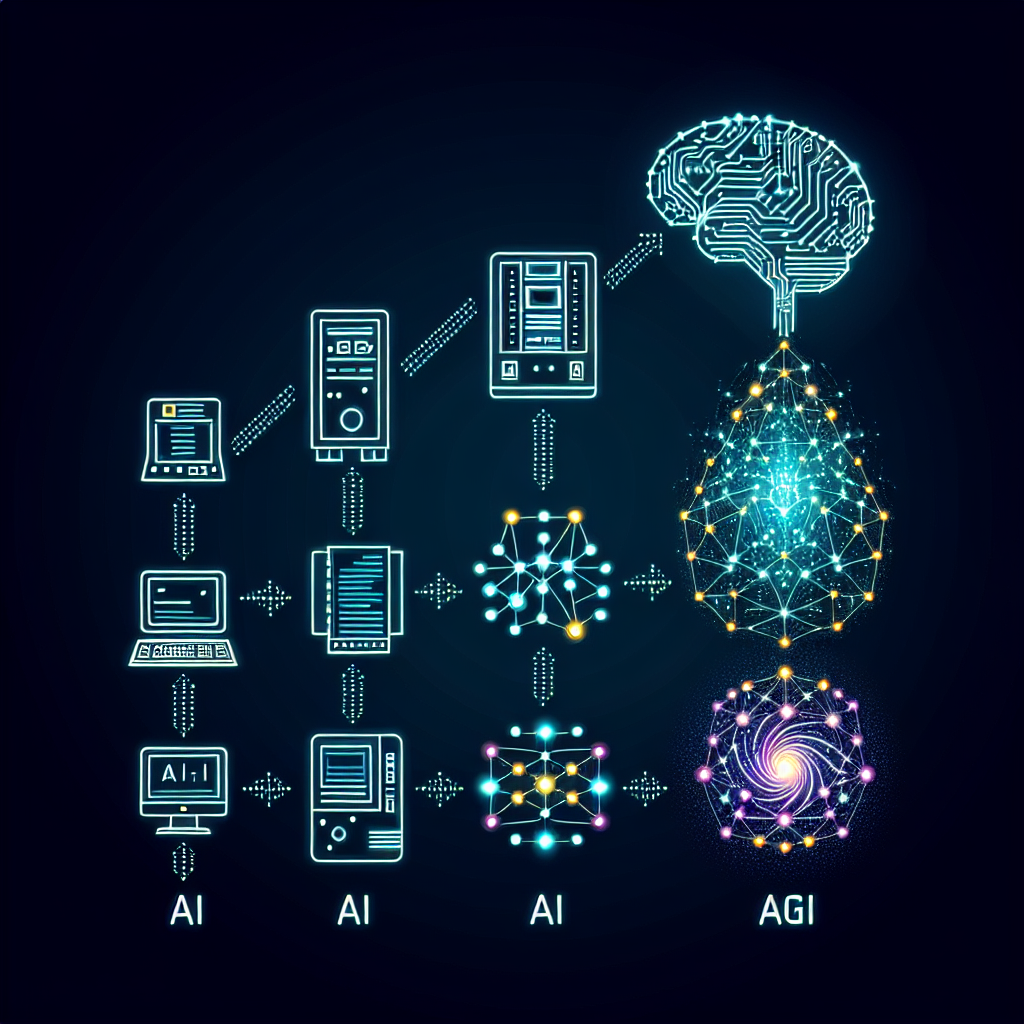Artificial intelligence (AI) has been a rapidly evolving field in recent years, with advancements in technology enabling machines to perform tasks that were once reserved for humans. From voice recognition to self-driving cars, AI has transformed the way we interact with technology and has the potential to revolutionize countless industries. However, as AI continues to develop, the concept of artificial general intelligence (AGI) has become a topic of interest and concern for researchers and experts in the field.
In this article, we will explore the evolution of AI technology, from its early beginnings to the current state of the art, and discuss the potential implications of AGI on society and the future of technology.
The Evolution of Artificial Intelligence Technology
The concept of artificial intelligence dates back to the 1950s, when researchers began exploring ways to create machines that could mimic human intelligence. Early AI systems were limited in their capabilities and often relied on pre-programmed rules to perform specific tasks. However, as computing power increased and algorithms became more sophisticated, AI technology began to advance rapidly.
One of the key breakthroughs in AI technology was the development of machine learning algorithms, which enable machines to learn from data and improve their performance over time. This has led to the development of AI systems that can recognize patterns, make predictions, and even learn to play complex games like chess and Go.
In recent years, deep learning has emerged as a powerful tool in the field of AI, enabling machines to process and analyze vast amounts of data in ways that were previously impossible. Deep learning algorithms, which are inspired by the structure of the human brain, have been used to create systems that can understand natural language, recognize images, and even generate realistic images and videos.
Another important development in AI technology is the rise of reinforcement learning, which enables machines to learn from their interactions with the environment. This has led to the development of AI systems that can play video games, control robots, and even learn to perform complex tasks like driving a car.
The Potential of Artificial General Intelligence
While current AI systems are capable of performing specific tasks with a high degree of accuracy, they are still limited in their ability to generalize and adapt to new situations. This is where the concept of artificial general intelligence (AGI) comes into play.
AGI refers to a hypothetical AI system that possesses the ability to understand and learn any intellectual task that a human being can. In other words, AGI would be able to perform a wide range of tasks with the same level of expertise and flexibility as a human.
The development of AGI has the potential to revolutionize countless industries, from healthcare to transportation to finance. AGI systems could help doctors diagnose diseases more accurately, enable self-driving cars to navigate complex environments, and even assist in scientific research by analyzing vast amounts of data.
However, the development of AGI also raises ethical and societal concerns. As machines become more intelligent and autonomous, questions arise about the impact of AGI on jobs, privacy, and security. There are also concerns about the potential for AGI systems to outperform humans in areas like decision-making and creativity.
FAQs about AI and AGI
Q: What is the difference between AI and AGI?
A: AI refers to systems that are designed to perform specific tasks, while AGI refers to systems that have the ability to perform a wide range of tasks with the same level of expertise as a human.
Q: How close are we to achieving AGI?
A: While significant progress has been made in the field of AI, achieving AGI remains a long-term goal. Researchers are working on developing algorithms and technologies that can enable machines to perform a wide range of tasks with the same level of flexibility and adaptability as a human.
Q: What are some potential benefits of AGI?
A: AGI has the potential to revolutionize countless industries, from healthcare to transportation to finance. AGI systems could help doctors diagnose diseases more accurately, enable self-driving cars to navigate complex environments, and even assist in scientific research by analyzing vast amounts of data.
Q: What are some potential risks of AGI?
A: The development of AGI raises ethical and societal concerns, including the impact on jobs, privacy, and security. There are also concerns about the potential for AGI systems to outperform humans in areas like decision-making and creativity.
Q: How can we ensure that AGI is developed ethically and responsibly?
A: It is important for researchers, policymakers, and industry leaders to work together to ensure that AGI is developed in a way that is ethical and responsible. This includes establishing guidelines for the development and deployment of AGI systems, as well as ensuring transparency and accountability in the use of AI technology.
In conclusion, the evolution of AI technology has led to the development of systems that can perform a wide range of tasks with a high degree of accuracy. The concept of AGI represents the next frontier in AI research, with the potential to revolutionize countless industries and transform the way we interact with technology. However, the development of AGI also raises ethical and societal concerns that must be addressed to ensure that AI technology is developed in a way that benefits society as a whole.

